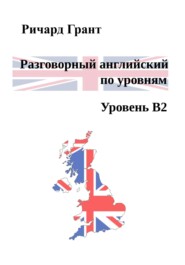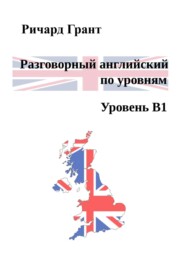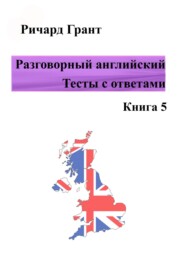По всем вопросам обращайтесь на: info@litportal.ru
(©) 2003-2024.
✖
Английский язык. Теория и практика. Местоимение
Настройки чтения
Размер шрифта
Высота строк
Поля
Личные местоимения и род неодушевленных существительных
Как правило, местоимения he/she (him/her) относятся к одушевленным объектам, но в художественной литературе и поэзии они могут использоваться и в отношении некоторых неодушевленных предметов:
He: Sun, wind, fear, love.
She: Earth, Moon, ship, boat, car, hope, justice, modesty, peace.
Кроме этого, местоимение she может охватывать названия некоторых стран:
I grew up in England. She will always remain in my memory. – ЯвыросвАнглии. Она навсегда останется в моей памяти.
Упражнение 1
Замените слова личными местоимениями.
Bob – he, books – they
1. a carpet 2. Mary 3. Mary and Tim 4. Mary and I 5. carpets 6. a tiger 7. tigers 8. milk 9. Robert 10. Robert and his dog 11. Helen and you 12. Mr. Nelson and I 13. Miss Jones 14. a waiter 15. a waitress
Упражнение 2
Заменитевтекстевыделенныесловаподходящимиличнымиместоимениями (I, we, you, he, she, it, they, me, us, him, her, them).
Lisa and Roger are in Spain now. Lisa and Roger are having their holiday. Lisa and Roger live in a hotel. The hotel is very comfortable. And the beaches are fantastic. The beaches are clean and big. The sea is warm. Roger goes jogging near the sea every morning. Lisa doesn’t go with Roger. Lisa wakes up late. Lisa and Roger met their friends there. So Lisa and Roger spend all days with their friends.
Упражнение 3
Заполнитепропускиличнымиместоимениями (I, we, you, he, she, it, they, me, us, him, her, them).
1. Look at your trainers. … are dirty. 2. Have … got a car, Sam? 3. I work for my mother. I help … in the shop. And she gives … some money. 4. Where is Cindy? I can’t see … . 5. The rat is under the table. Do you see …? 6. We have two dogs. We often take … for a walk. We also take a ball and our dogs like to play with … . 7. Our teacher is old and … has a beard. 8. Laura and I play volleyball. … do it on Sundays. 9. My brother works at the hospital. … is a doctor. 10. Peter and Anna need your help. Can you help …? 11. Robert is ill today. So we will not see … . 12. My favorite subject is History. … is very exciting. 13. Don’t sit on that chair. … is broken.
Упражнение 4
Заполнитепропускиличнымиместоимениями (I, we, you, he, she, it, they, me, us, him, her, them).
1. I am very busy. Please don’t disturb … . 2. Tom is a good lawyer. Do you know …? 3. Here is your tomato juice. Drink … . 4. Mary and Paul can’t open the door. Go and help … . 5. Look at her. … is so beautiful! 6. I love Anna. … is my best friend. 7. It’s my sister’s birthday today. This is a present for … . 8. Where is my notebook? I can’t find … . 9. We are going shopping. Let’s go with … . 10. We are going to the beach. You can join … . 11. Give me some water. … am thirsty. 12. I like Kate’s hair. … is so thick and long. 13. Those are my nuts. Don’t eat … . 14. These are my souvenirs. … bought … in England.
Притяжательные местоимения
– Притяжательные местоимения – отражают принадлежность или связь предметов.
My book is black and his is yellow. – Моякнига – черная, аего – желтая.
Притяжательные местоимения могут быть в присоединяемой или абсолютной форме.
Присоединяемая форма: мой, моя, мое, мои – my, его – his, ее – her, его – its, наш, наша, наше, наши – our, ваш, ваша, ваше, ваши – your, их – their.
Абсолютная форма: мой, моя, мое, мои – mine, его – his, ее – hers, наш, наша, наше, наши – ours, ваш, ваша, ваше, ваши – yours, их – theirs.
Присоединяемые притяжательные местоимения всегда используются только вместе с соответствующим существительным:
My cat is 5 years old. – Моемукоту 5 лет.
а абсолютные местоимения заменяют их собой:
What do hedgehogs drink? Mine likes milk. – Чтопьютежи? Моему нравится молоко.
Притяжательное местоимение its пишется без апострофа.
Местоимение в присоединяемой форме всегда стоит перед существительным.
Если существительное использовано вместе с прилагательным, то притяжательное местоимение ставится перед ними:
I have lost my new keys. – Я потерял свои новые ключи.
Упражнение 5
Замените слова в скобках на притяжательное местоимение.
1. Her salary is higher than (his salary). 2. Your exams are easier than (our exams). 3. My pens are brighter than (her pens). 4. His song is longer than (your song). 5. Our food is healthier than (their food). 6. Their yacht is older than (my yacht). 7. This juice is fresher than (ourjuice).
Упражнение 6
Найдите ошибки в некоторых предложениях и исправьте их.
1. The photos on the table are my. 2. It isn’t ours dog. 3. Jane is watching her favorite film. 4. His watermelon was very sweet. 5. Anna loves his husband very much. 6. How many books are there in hers library? 7. We talked about ours problems. 8. The elephant hurt his leg. 9. I met my friends at the cafе. 10. Is this room your? 11. That camera is their. 12. It’s my birthday, not yours. 13. This sandwich is his. 14. Theirs teacher is younger than ours. 15. Mine relatives live far from me. 16. She is a friend of my. 17. Hers garden is more beautiful than yours. 18. The world is at her feet. 19. Robert likes to spend her money on clothes. 20. Did you like mine present?
Упражнение 7
Употребите подходящее притяжательное местоимение.
1. You should play with … own toys. 2. Robert couldn’t use … notebook because it was broken. 3. The funny cat tried to catch … tail. 4. I hope you’ll enjoy … meal. 5. Anna drove … children to school. 6. I had … chest X-rayed. 7. We can bring … own instruments. 8. They often go to Canada because they love … nature. 9. She can’t find … glasses. 10. He didn’t give me … number.
Упражнение 8
Выберите из скобок подходящее местоимение.
1. Whose slippers are these? Are they … (my, mine) or … (your, yours)? – They are … (her, hers). 2. … (Our, Ours) car is cleaner than … (their, theirs). 3. Look at this girl. She is … (his, him) wife. 4. It’s not … (her, hers) lipstick. … (Her, hers) is darker. 5. … (My, Mine) life, … (my, mine) rules. 6. Was … (your, yours) trip exciting? – … (My, Mine) was boring. 7. Can I use … (their, theirs) hairdryer? – … (Our, Ours) is out of order. 8. Mrs. Novak is a friend of … (his, him). 9. Sometimes she waters … (my, mine) flowers and I water … (her, hers). 10. I remember the street but I don’t remember … (it, its, her, his) name.
Указательные местоимения
– Указательные местоимения – служат для указания на предметы, находящиеся рядом (this, these) или на некотором расстоянии (that, those) от говорящего.
This house is not mine, mine is that green cottage next to it. – Этотдом – немой, мой – вонтотзеленыйкоттеджрядомсним.
Указательные местоимения имеют форму единственного и множественного числа.
Единственное число
Как правило, местоимения he/she (him/her) относятся к одушевленным объектам, но в художественной литературе и поэзии они могут использоваться и в отношении некоторых неодушевленных предметов:
He: Sun, wind, fear, love.
She: Earth, Moon, ship, boat, car, hope, justice, modesty, peace.
Кроме этого, местоимение she может охватывать названия некоторых стран:
I grew up in England. She will always remain in my memory. – ЯвыросвАнглии. Она навсегда останется в моей памяти.
Упражнение 1
Замените слова личными местоимениями.
Bob – he, books – they
1. a carpet 2. Mary 3. Mary and Tim 4. Mary and I 5. carpets 6. a tiger 7. tigers 8. milk 9. Robert 10. Robert and his dog 11. Helen and you 12. Mr. Nelson and I 13. Miss Jones 14. a waiter 15. a waitress
Упражнение 2
Заменитевтекстевыделенныесловаподходящимиличнымиместоимениями (I, we, you, he, she, it, they, me, us, him, her, them).
Lisa and Roger are in Spain now. Lisa and Roger are having their holiday. Lisa and Roger live in a hotel. The hotel is very comfortable. And the beaches are fantastic. The beaches are clean and big. The sea is warm. Roger goes jogging near the sea every morning. Lisa doesn’t go with Roger. Lisa wakes up late. Lisa and Roger met their friends there. So Lisa and Roger spend all days with their friends.
Упражнение 3
Заполнитепропускиличнымиместоимениями (I, we, you, he, she, it, they, me, us, him, her, them).
1. Look at your trainers. … are dirty. 2. Have … got a car, Sam? 3. I work for my mother. I help … in the shop. And she gives … some money. 4. Where is Cindy? I can’t see … . 5. The rat is under the table. Do you see …? 6. We have two dogs. We often take … for a walk. We also take a ball and our dogs like to play with … . 7. Our teacher is old and … has a beard. 8. Laura and I play volleyball. … do it on Sundays. 9. My brother works at the hospital. … is a doctor. 10. Peter and Anna need your help. Can you help …? 11. Robert is ill today. So we will not see … . 12. My favorite subject is History. … is very exciting. 13. Don’t sit on that chair. … is broken.
Упражнение 4
Заполнитепропускиличнымиместоимениями (I, we, you, he, she, it, they, me, us, him, her, them).
1. I am very busy. Please don’t disturb … . 2. Tom is a good lawyer. Do you know …? 3. Here is your tomato juice. Drink … . 4. Mary and Paul can’t open the door. Go and help … . 5. Look at her. … is so beautiful! 6. I love Anna. … is my best friend. 7. It’s my sister’s birthday today. This is a present for … . 8. Where is my notebook? I can’t find … . 9. We are going shopping. Let’s go with … . 10. We are going to the beach. You can join … . 11. Give me some water. … am thirsty. 12. I like Kate’s hair. … is so thick and long. 13. Those are my nuts. Don’t eat … . 14. These are my souvenirs. … bought … in England.
Притяжательные местоимения
– Притяжательные местоимения – отражают принадлежность или связь предметов.
My book is black and his is yellow. – Моякнига – черная, аего – желтая.
Притяжательные местоимения могут быть в присоединяемой или абсолютной форме.
Присоединяемая форма: мой, моя, мое, мои – my, его – his, ее – her, его – its, наш, наша, наше, наши – our, ваш, ваша, ваше, ваши – your, их – their.
Абсолютная форма: мой, моя, мое, мои – mine, его – his, ее – hers, наш, наша, наше, наши – ours, ваш, ваша, ваше, ваши – yours, их – theirs.
Присоединяемые притяжательные местоимения всегда используются только вместе с соответствующим существительным:
My cat is 5 years old. – Моемукоту 5 лет.
а абсолютные местоимения заменяют их собой:
What do hedgehogs drink? Mine likes milk. – Чтопьютежи? Моему нравится молоко.
Притяжательное местоимение its пишется без апострофа.
Местоимение в присоединяемой форме всегда стоит перед существительным.
Если существительное использовано вместе с прилагательным, то притяжательное местоимение ставится перед ними:
I have lost my new keys. – Я потерял свои новые ключи.
Упражнение 5
Замените слова в скобках на притяжательное местоимение.
1. Her salary is higher than (his salary). 2. Your exams are easier than (our exams). 3. My pens are brighter than (her pens). 4. His song is longer than (your song). 5. Our food is healthier than (their food). 6. Their yacht is older than (my yacht). 7. This juice is fresher than (ourjuice).
Упражнение 6
Найдите ошибки в некоторых предложениях и исправьте их.
1. The photos on the table are my. 2. It isn’t ours dog. 3. Jane is watching her favorite film. 4. His watermelon was very sweet. 5. Anna loves his husband very much. 6. How many books are there in hers library? 7. We talked about ours problems. 8. The elephant hurt his leg. 9. I met my friends at the cafе. 10. Is this room your? 11. That camera is their. 12. It’s my birthday, not yours. 13. This sandwich is his. 14. Theirs teacher is younger than ours. 15. Mine relatives live far from me. 16. She is a friend of my. 17. Hers garden is more beautiful than yours. 18. The world is at her feet. 19. Robert likes to spend her money on clothes. 20. Did you like mine present?
Упражнение 7
Употребите подходящее притяжательное местоимение.
1. You should play with … own toys. 2. Robert couldn’t use … notebook because it was broken. 3. The funny cat tried to catch … tail. 4. I hope you’ll enjoy … meal. 5. Anna drove … children to school. 6. I had … chest X-rayed. 7. We can bring … own instruments. 8. They often go to Canada because they love … nature. 9. She can’t find … glasses. 10. He didn’t give me … number.
Упражнение 8
Выберите из скобок подходящее местоимение.
1. Whose slippers are these? Are they … (my, mine) or … (your, yours)? – They are … (her, hers). 2. … (Our, Ours) car is cleaner than … (their, theirs). 3. Look at this girl. She is … (his, him) wife. 4. It’s not … (her, hers) lipstick. … (Her, hers) is darker. 5. … (My, Mine) life, … (my, mine) rules. 6. Was … (your, yours) trip exciting? – … (My, Mine) was boring. 7. Can I use … (their, theirs) hairdryer? – … (Our, Ours) is out of order. 8. Mrs. Novak is a friend of … (his, him). 9. Sometimes she waters … (my, mine) flowers and I water … (her, hers). 10. I remember the street but I don’t remember … (it, its, her, his) name.
Указательные местоимения
– Указательные местоимения – служат для указания на предметы, находящиеся рядом (this, these) или на некотором расстоянии (that, those) от говорящего.
This house is not mine, mine is that green cottage next to it. – Этотдом – немой, мой – вонтотзеленыйкоттеджрядомсним.
Указательные местоимения имеют форму единственного и множественного числа.
Единственное число











